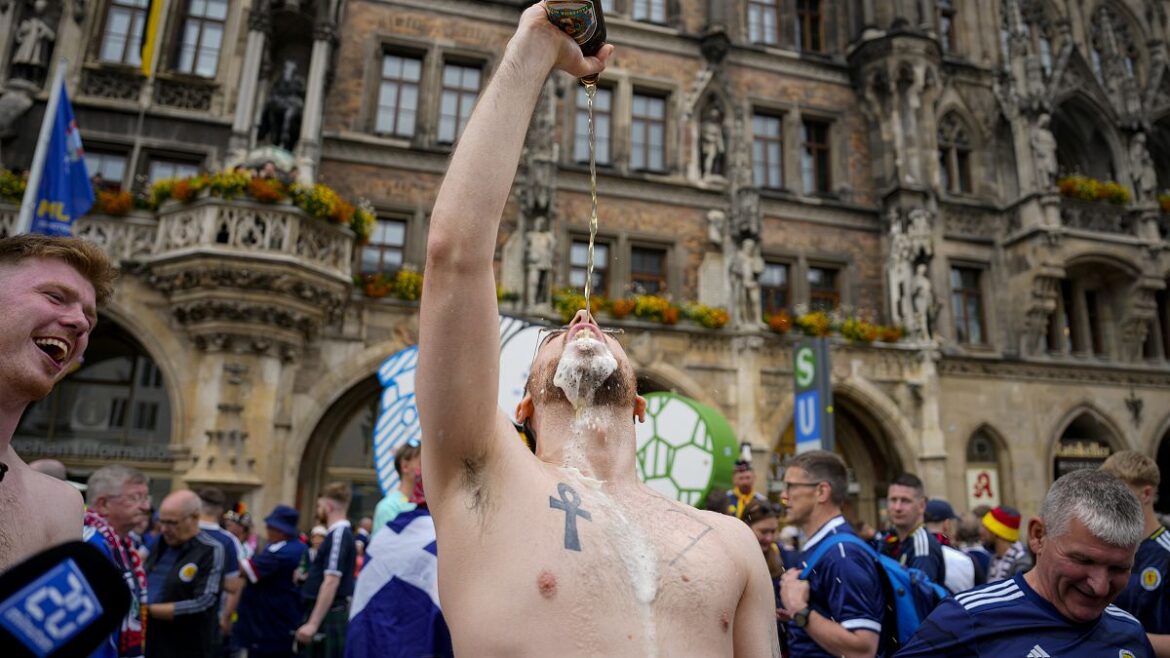Can Euro football revive the German economy after years of stagnation? According to experts, major sporting events have only a minimal impact on local economies.
Despite high expectations and millions of fans spending lavishly, experts agree that the European Football Championship will not be able to pull the German economy out of years-long stagnation.
According to Jonas Froch, a sports economist at the University of Cologne, research shows that, overall, similar sporting events have a minimal or even negative economic impact.
“The role of the substitution mechanism is important. This means that people do not necessarily spend more money, but they spend it differently. Whereas they usually went to the cinema or the theater, they now spend their money at matches, in bars or during barbecues at home”explained Jonas Froch.
UEFA takes big step forward in tournament
The German Institute for Economic Research came to a similar conclusion. The institute’s director told Reuters that people might buy a new television because of the European championship, but they would save the money spent elsewhere. Consumption therefore does not increase, but is transformed.
Of course, that doesn’t mean no one benefits. UEFA, for example, can expect to make a profit of one and a half billion euros, and the company can also profit from the tournament. One of the best examples is the 2006 FIFA World Cup in Germany, the consequences of which have been analyzed in detail by economists.
“There may be intangible effects: people’s quality of life may improve, social cohesion and morale may increase. This effect was particularly marked during the 2006 FIFA World Cup in Germany. Some studies assign a value of 800 million euros to the intangible assets generated in 2006. And this is approximately the amount of public funds that an organizing committee must spend on a similar event”declared Mr. Froch.
Caterers and hosts benefit from it
Four of the ten host cities for Euro 2024 are in and around the Ruhr area. This region was once the heart of German heavy industry, but since the crisis of the coal and steel industries in the 1970s, it has increasingly turned to services. Some of the unused industrial complexes have also found new uses.
One of the iconic sites of the Ruhr’s transformation is the Zollverein coal mine in Essen, which closed in 1986 and is now a UNESCO World Heritage Site. Today, tourists stroll, locals run, bike, and even work in the huge, rusting buildings, some of which house offices. The importance of football is also evident here, with the area covered in stickers of local teams.
The region remains a very important center for the German economy. And the influx of tourists certainly benefits local caterers and accommodation providers.
“We spend between 100 and 150 euros a day. We drink a lot, we eat well. We have a good time, so everything is good”declared a Scottish supporter.
Hotel room rates have seen their prices skyrocket during the Euro. In recent days we have met Hungarian fans who were unable to find reasonably priced accommodation and ended up sleeping in their cars.



